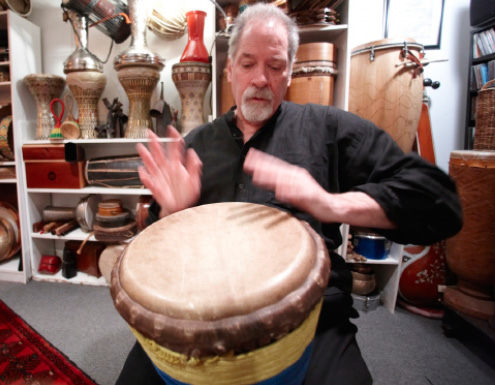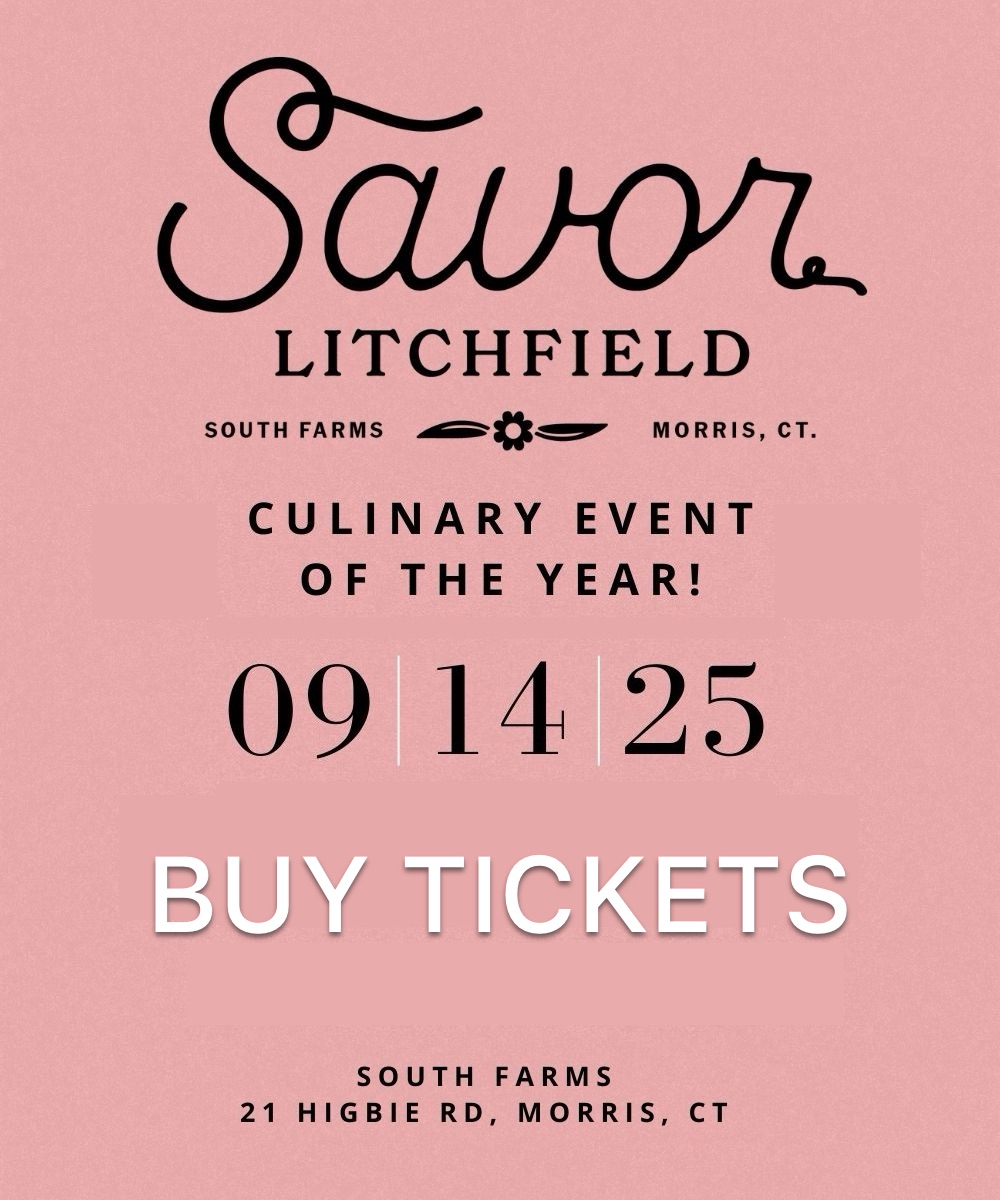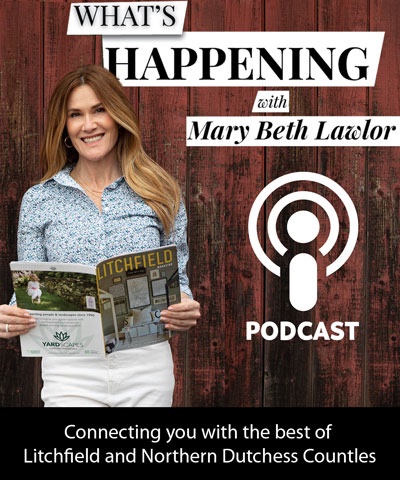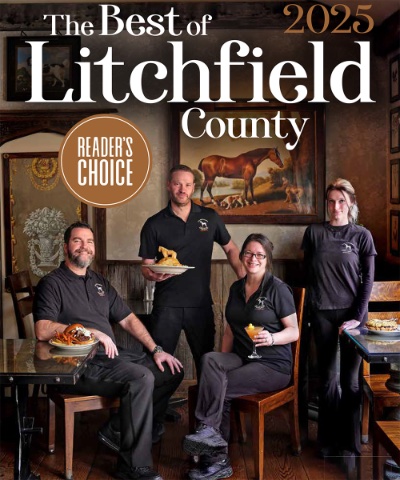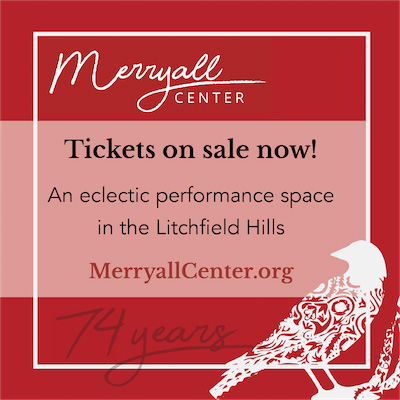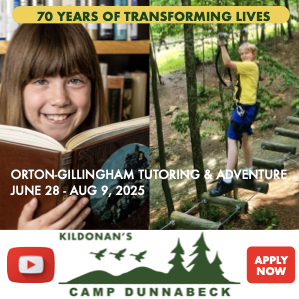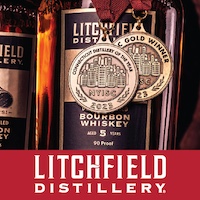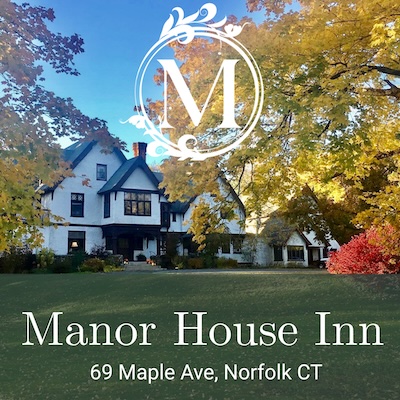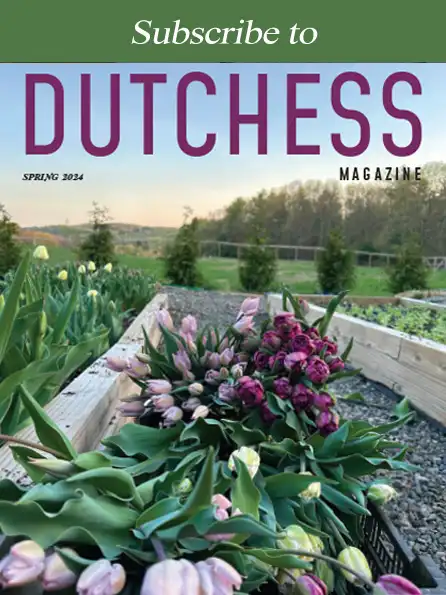April 1, 2013
John Marshall has been a part of the music scene in Litchfield County
for years and now he has formed a new percussion quintet.
When John Marshall was very young, maybe 8 or 9 years old, he would listen to the parades going by in his hometown of Ridgefield. As an adult, he still remembers the time that he had his “aha” moment. More than just seeing the drums, he could hear them being played, and he felt startled because he could feel it in his body.
Later on, he watched The Beatles perform on The Ed Sullivan Show, particularly Ringo on the drums. He wanted to be a Beatle, to have their hair, to be a musician. A young friend of John’s, a girl who lived nearby, had a spanking new drum set and he was convinced he had to have one too. He asked his mother for a drum set, and slowly—piece by piece—he got one. Then he begged for lessons.
His first teacher was from Korea. John recalls that he was very good, but stern. With this instructor, John learned how to read music, and was classically trained in percussion. “I traveled quite a distance on a weekly basis as a boy to study with Dong Wook Park, a master classical percussionist who went on to direct the Seoul Symphony. His whole approach was old school, and for our entire sessions we focused on percussion rudiments and reading manuscript— difficult then, invaluable now! I’ve had the opportunity to study with great teachers since then, Glen Velez, Elvin Jones, Royal Hartigan, Naren Budhakar, but if I hadn’t done the fundamental work with Mr. Park, I wouldn’t have been able to connect the dots.”
The Beatles were a great influence for John. At 12 and 13 years old, John was still following their music, and as they traveled to India to play with Ravi Shankaar, John’s taste in music evolved, and he began listening to music from India as well. He moved on to Bulgarian music, and eventually to music from all over the world. Part of the deal with his mother was that he had to take lessons with a jazz piano player from Westport. “John Lewis taught me about scales, melody, harmony and improvisational freedom— he also taught me about the history and narrative of truly American musical forms like jazz, blues, R&B, etc.”
While in high school, John studied primarily with a young graduate of Oberlin who was a real modernist. “He was the music teacher at school, and instead of having a traditional high school band, he would lead an improvisational ensemble that would offer concerts for the whole school with just us musicians showing up with our instruments—no sheet music, no rehearsals, just on the spot performances of improvised music—amazing! Very arty—with sounds of water being poured into buckets and bird whistles and re-tuned guitars, etc.—that was an incredibly expressive experience. Of course, on the side, I had the experience of being in jazz fusion type bands which were all the rage—and yes, we did win the Battle of the Bands competition and toured all around. It was lots of fun!” At that time the Battle of the Bands was a great vehicle for launching young talent. John remembers that Dave Brubeck’s sons, and John Scofield, and Adam Nussbaum were all a part of it.
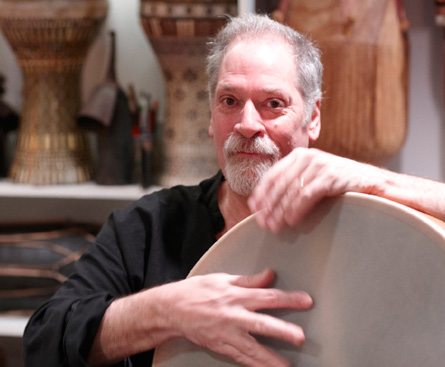
John Marshall’s career can be defined by five major areas: performing, composing, teaching, collaborating, and building personal skills. “These five areas share the spotlight of my full attention, and come in and out of primary focus,” he explains. “I suppose my personal skill building (becoming a better player) might be the most important component to me, because the search for refined musical expression is constant and alluring. There’s always a gap between my artistic imagination and my reality, and that’s the energy that makes this five-spoke wheel of mine moving.”
For years now, many children from the area’s schools have enjoyed John’s workshops and classes. John loves to teach, especially children because they dodge the editing process. Since 2001, he has been teaching at Indian Mountain School in Lakeville, where he instructs the Drum Ensemble elective to students in grades seven to nine, and gives private drumming lessons to a handful of the school’s students each term. He also teaches adults. For the past four years, he has been running The Salisbury Drum Ensemble, a group of 20 adults. They meet once a week to play traditional West African sequences, and they sing, as well. “I feel honored when I’m successful at imparting information that conveys musical joy to a student. It’s like passing a torch, or gift giving—it’s joyful.” In recognition of how good a teacher he is, Marshall has received two national grants for teaching, in 2010 and 2012, from the Jubilation Foundation and the Tides Corporation. He has also been honored to receive several awards and endorsements from national and international percussion companies.
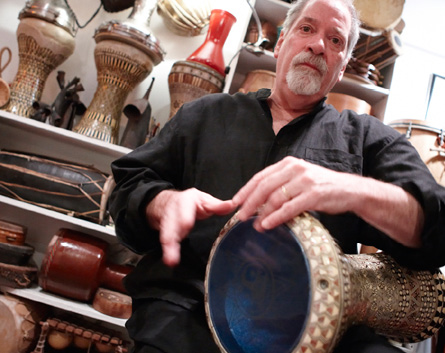
Asked if people are born with rhythm, or if they learn it, John believes we are all born with rhythm, but, “We get out of rhythm in the ways we live. People get out of sync.” He says that personally, he has to play the drums—it’s essential to him. Even when he had Lyme disease and developed arthritis, he stayed with his drumming. “The physical activity is restorative. There are brain changes and breathing changes, it’s like detox.” John sees it in people he works with on a long-term basis. Their brain waves change and it revitalizes their energy.
John’s top instruments now are the tabla (classic frame drum) and the sabarr, (from Senegal) which is used with one stick in one hand. He continues to study Middle Eastern percussion, using the riq, darabucca, daff and bendir—all folk instruments. “I recently was fortunate to receive a beautiful handmade mother of pearl frame drum from Lebanon which I enjoy playing very much. And, of course, I’m always honing skills on the traditional jazz drum kit. And I compose at the piano.”
John also studies tabla with an Indian gentlemen named Naren Budhakar in Manhattan. North Indian tabla has a classical repertoire. John says “Studying a classical instrument, that interests me.”
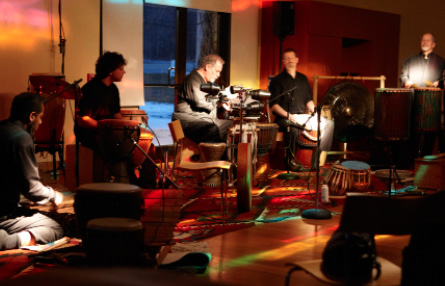
Recently, he has formed a new quintet called Terra Coda. They are all professional percussionists: Andrew Parker, Randy Steward, Mark Ingram, and Rick Quintinal. Two of them were John’s former music students. Having worked intensely over the last four months, they each have a role. “We see Terra Coda as an expression of sound hierarchies that move from lows to highs, from obvious to mysterious, and from tonal to rhythmic. We all share those roles, but fundamentally, Rick plays the djun djun (base drums) and provides the bottom, Mark carries a lot of the melody, providing the high end with gyil and mbira, and Andy, Randy and I float along in the middle, conversing and soloing.” John’s role is multipurpose. He directs the ensemble and composes the pieces. “There’s actually very little improvisation within our set. The pieces are all rehearsed and written out. Yes, there are solos, but the forms are constant. We’re also rehearsing pieces by other composers like Steve Reich, Norman Scott Robinson and B. Michael Williams.” Indeed, John has plans to produce professional recordings with Terra Coda. At a recent concert in Litchfield, Terra Coda played to a full house, and the energy in the space was palpable. The five percussionists created a full sound that had the audience mesmerized.
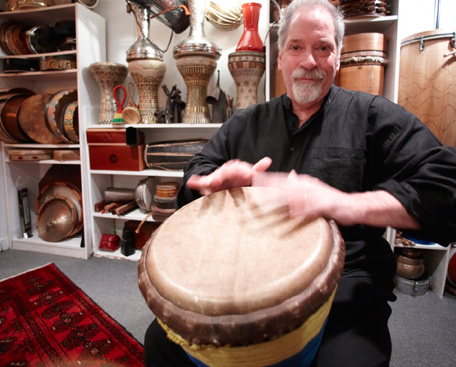
The broad spectrum of John’s collaborations—Middle Eastern gigs, movie scores, jazz concerts, winds and percussion recordings, and West African rhythms—is a testament to the incredible talent and versatility he has developed over his career. John says, “Playing solo can be challenging—it’s easier to have accompaniment. I love duo percussionists. Music is about communication, and I like to light the sparks on stage in real time as an organic process with others. That’s easy to do with duos, trios, ensembles of all sizes—not always easy to do in a solo setting. I will say, though, that when I’m successful as a solo artist in conveying any clarity of the creative process, it’s a real accomplishment, and there’s nothing more rewarding.”
“Practice is a huge thing for me.” Referring to riyaz, an Indian term for the art of practicing, he says it is a spiritual undertaking for him. “I’m devoted to it, and it’s a fundamental cornerstone of my identity. I try to do it everyday, sometimes for several hours, when my schedule affords it. Dawn is the best time for sitting with an instrument. There’s a tradition in India that claims that the gods are most pleased with musical practice at the breaking of dawn.”

John has composed original pieces for the dance company, Pilobolus, and for ASAP (After School Arts Program). He does original compositions for movie scores with Robert Weinstein, a guitarist and David Darling, a cello player. “Recently I’ve recorded original music with Duo JOPA, which is a collaboration of winds and percussion. I’m excited about this project. Most of our listeners are located in Egypt. You can hear our music on Sound Cloud.”
Asked what he listens to these days, John replies, “A pretty wide range: Bach, Stravinsky, Debussy, Miles Davis, Brazilian, Ghanaian, lots of North indian classical—Zakir Hussain always floors me.”
Friendly and with a comfortable, gentle manner, it’s easy to see why John Marshall is respected and beloved in the region. Father of three and grandfather of one, he lives in the Northwest Corner with his wife, artist Cecilia Marshall. In the basement of his charming home, his studio is filled with hundreds of percussion instruments of all kinds and from all over the world. The folk instruments in his impressive collection “represent the music of a people, passed on verbally.” Hearing him speak about his work and about music, it’s clear that he is a natural teacher who has a lot to offer. This openness extends into his collaborations with other musicians and seems to be key to his success. “I consider myself extremely fortunate, to feel a sense of integrity in the profession I have chosen.” It took a lot of courage to raise his kids and live in Litchfield, Connecticut, instead of New York City, (where the music biz is centered). “It’s much easier to have a musical career in the city than in the country. I’m proud of what I’ve done.” And that’s what he tells his students, “Get out there and do it now.”
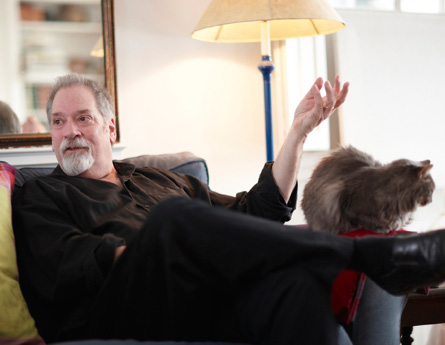
John Marshall’s music has been featured on National Public Radio’s All Things Considered, Echoes, Hearts of Space, PBS Television and the British Broadcasting Company (BBC). John will be performing with Crystal Cymbalogy at Open Sky Barn in Redding on April 19. On April 27, he will be at the Drum Connection in Boston. Check back with us for future, local Terra Coda performances. John presently has four instructional books with CDs available through Amazon.com, and he has DVDs forthcoming. John’s series of workshops offers a rare opportunity to gain proficiency in worldwide hand drum techniques. Workshops may be designed to fit any schedule; half day, full day, weekend or extended residencies. Private organizations, colleges, community groups, corporations and learning centers of all kinds are welcome to inquire. John also teaches individuals and small groups at his studio. For more information on private instruction, contact him at: jomarshall@earthlink.net
Learn more about John Marshall at www.marshalldrum.net.





